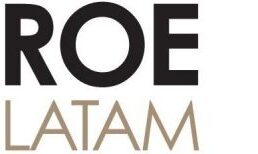
6 Essential Requirements of the EU Whistleblowing Directive: A Compliance Guide for Organizations
Navigating the EU Whistleblowing Directive: A Compliance Roadmap
The EU Whistleblowing Directive (Directive 2019/1937) has transformed corporate accountability across Europe, mandating robust protections for whistleblowers who expose breaches of EU law. For organizations with 50+ employees, compliance is not optional—it’s a legal imperative. In this guide, we break down the 6 minimum requirements outlined in Daniel Vaknine’s original article on Compliance & Ethics Blog, offering actionable insights for seamless implementation.
.
1. Establish Secure Internal Reporting Channels
Organizations must provide confidential, accessible channels for whistleblowers to submit reports—whether written (email, secure platforms) or oral (phone, in-person meetings). While anonymous reporting isn’t mandatory, enabling it is strongly recommended to encourage disclosures. Failure to safeguard identities risks fines of up to €20 million or 4% of global turnover-
2. Protect Against Retaliation
The Directive prohibits any form of retaliation, including dismissal, demotion, harassment, or contractual penalties. Legal safeguards override loyalty clauses or NDAs, ensuring whistleblowers can report without fear. For example, Hungary’s flawed transposition—which excludes media disclosures—highlights the risks of non-compliance and cultural resistance.
3. Align with GDPR & Data Protection Laws
Whistleblower systems must comply with General Data Protection Regulation (“GDPR”) strict data minimization and retention rules. Reports must be deleted within 2 years after the case concludes, not from the submission date. Implement encryption and access controls to prevent leaks, and appoint a Data Protection Officer (DPO) for oversight.
4. Enforce Timely Feedback & Follow-Up
The Directive mandates strict timelines:
7 days: Confirm receipt of the report.
3 months: Provide updates on investigations or actions taken.
2 years: Delete case data post-resolution
5. Develop a Clear Whistleblower Policy
A transparent policy should outline:
Reporting channels and procedures.
Protections against retaliation.
GDPR compliance measures.
6. Prioritize Communication & Education
Even a flawless system fails if employees don’t trust or understand it. Regular training—via quizzes, role-plays, or workshops—can demystify the process. Highlight anonymous options to alleviate fears
Beyond Compliance: Building an Ethical Culture
While meeting the Directive’s minimum requirements is critical, fostering a speak-up culture ensures long-term success. Tools like ISO 37001 and 37002 offer voluntary guidelines to enhance trust and governance beyond legal mandates.
You can contact us at online@roelatam.com to help you design and implement a compliance system that aligns and exceeds the requirements of the EU Whistleblowing Directive and the American FCPA.
If you found this article interesting, perhaps you would like to check these:
- UK, France, Switzerland Launch Critical Anti-Corruption Task Force
- The 2025 FCPA Enforcement Pause: Implications for Anti-Corruption Efforts in Latin America
- FCPA Enforcement Pause: 5 Critical Compliance Strategies to Mitigate Risk Now
- ROE Latam Advises CORSAIN of El Salvador on the Implementation of ISO 37001
- ROE Latam Advises the National Public Security Academy of El Salvador on the Implementation of ISO 37001
- ISO 37001 Anti-Bribery Management System (ABMS)
- ISO 37301: Compliance Management Systems
- ISO 37002: Whistleblowing Management Systems
